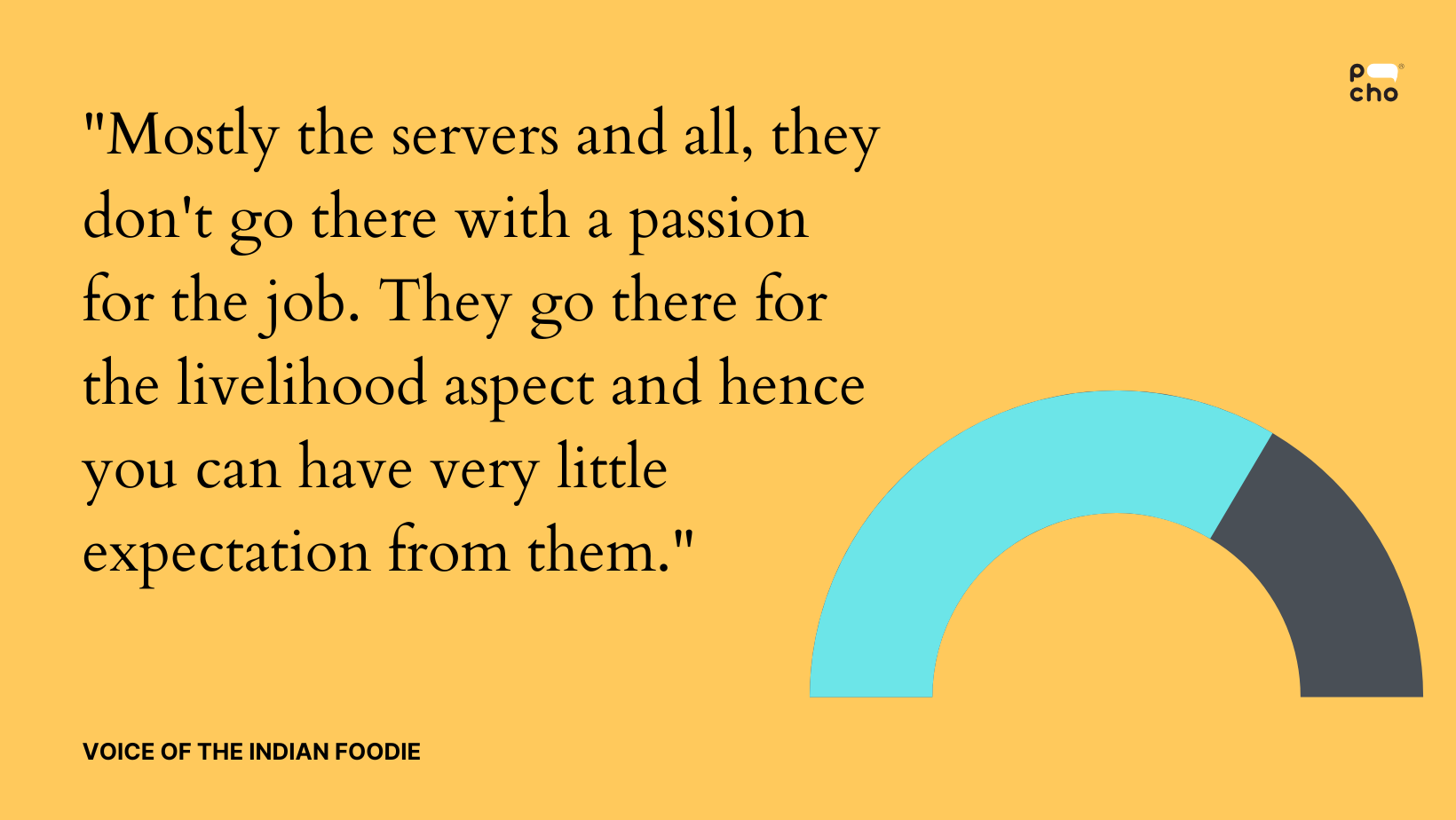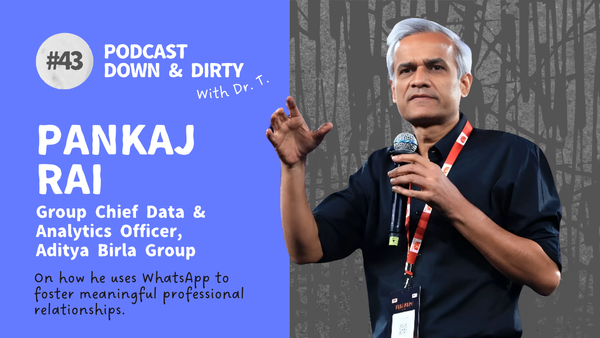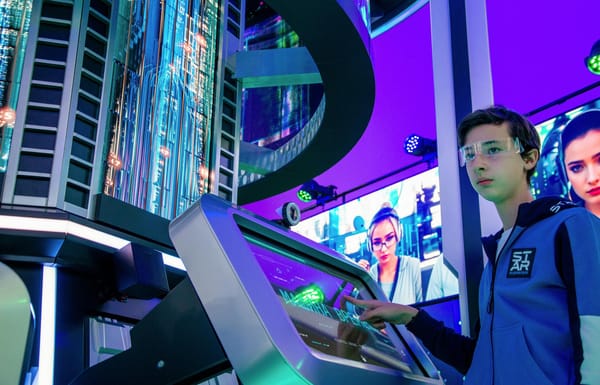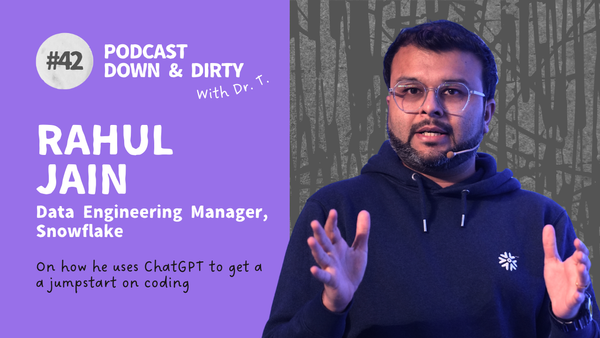💬Zomato’s dine-in discounts: What will it take to build trust?
A narrative highlighting what a young adult wants from a restaurant experience post-Covid. All this in the context of Zomato and Swiggy offering deep dine-in discounts.

Written by Tarushi Mohan
As part of my two-phase study “Our Hunt for Food” and its follow up “Food 2.0,” I had the opportunity to connect with Sharath,* a UPSC aspirant based out of Hyderabad, about how his life changed once the Covid lockdown hit. The first study was conducted in April 2020, right after the lockdown began, where we unpacked the shift in his daily eating habits and routines while the second study happened a month later where we discussed his apprehensions and concerns about ordering in and eating out.
This narrative piece reflects on Sharath’s delivery and dine-in habits impacted by Covid-19. While restaurants are bouncing back from the Covid slump, consumer experiences around hygiene but also staff interactions might harbor ideas for dine-in focused restaurants as they tackle increased competition from the likes of Zomato and Swiggy.
Sharath’s profile:
- Male
- 29 years old
- Living with a roommate
- Missed stepping out for street food as a stress-buster from his hectic exam preparation
The slow burn of the early pandemic on home delivery
During the first few months of the first pandemic, Sharath’s concern with ordering even from delivery apps was predictably around safety concerns - “ I like Zomato and Swiggy but currently we don't want to entertain any human interface to the most extent possible.” So he and his roommate cooked.
“I used to have some breakfast outside, like some normal typical breakfast. But now I prefer something that is easily done at home itself. So eggs, boiled eggs,” said Sharath while talking about how his regular breakfast has completely changed due to the Covid-19 pandemic. Unpacking this shift, he explained how the lack of decent cooking chops has led him to opt for meals that are easily-cooked and not time taking.
Digging deeper into his apprehensions around ordering-in he explained, “So I don't think the food delivery should be an issue. The person who is carrying it might be an issue, maybe his health and hygiene.” Contactless delivery offered by Zomato was his workaround for minimizing infection risk. Good call, Zomato!
Once the lockdown restrictions eased, he resorted to ordering his beloved biryani from familiar restaurants owing to some assurance of hygiene and food quality but continued to opt for contactless delivery every single time.
Even dine-ins right after the lockdown was practically “public suicide”
Over the course of our conversation, we got talking about eating out, once restaurants started opening up and the government eased up on public movement restrictions. “Then that will be public suicide? Right? No point in doing all this…” was his reaction.
The only justification he could think of for opening up restaurants in such a high risk environment was providing livelihood in some form of financial and economic relief to the F&B industry. Apart from that, the whole idea seemed ridiculous to him.
He gave a very detailed, 3-point explanation for his resolve to not opt for dine-in. Firstly, owing to the high population density of the country, he did not expect people to maintain social distancing protocols and take proper precautions.
Secondly, he viewed the personal hygiene of the restaurant staff as a “severe threat” because, “ Mostly the servers and all, they don't go there with a passion for the job. They go there for the livelihood aspect and hence you can have very little expectation from them.”
The third reason was the increased susceptibility to infection due to monsoons which would indirectly affect the immunity system.
For restaurants, it’s about building consumer trust while feeling the pinch of competition
When I asked Sharath about the measures restaurants could take that might encourage him to eat out, eventually he talked about how social distancing protocols and personal hygiene were the key. In his typical UPSC-aspirant style, he gave me pointers for that as well. “They should actually check each and every person very thoroughly… like the temperature thing or like the health condition and all,” is what he said, belying his confidence in existing sanitary practices.
The second point he made was screening the people who walked into the restaurant and ensuring that they came from a hygienic environment, which again, he himself deemed “discriminatory” and “impractical.” He did wish that restaurants offered the option to pre-book tables and only allow a limited number of people in a particular time slot so as to restrict the crowd at any given point of time.
With Zomato offering significant discounts (up to 25% in some cases) to lure the public into physically visiting restaurants, Sharath might get his wish come true with more pre-bookings for dining-in services. This could help with crowds but for restaurants this means more competition in the space by the likes of Zomato and Swiggy (that just bought Dine-out, by the way!)
Restaurants are indeed facing a double whammy. Safety standards, attentive staff, great ambience are costs they will have to bear in order to attract and retain customers in a post-Covid context. And yet, it appears that the rewards are going to have to be split even further between restaurants and the foodtech behemoths. Ouch!
*Names are changed to protect participant identities



